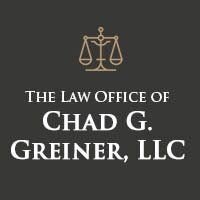Best Foreclosure Lawyers in Georgia
Share your needs with us, get contacted by law firms.
Free. Takes 2 min.
Free Guide to Hiring a Real Estate Lawyer
Or refine your search by selecting a city:
List of the best lawyers in Georgia, United States
About Foreclosure Law in Georgia, United States
Foreclosure is the legal process by which a lender attempts to recover the balance of a loan from a borrower who has stopped making payments, typically resulting in the sale of the property used as collateral for the loan. In Georgia, the foreclosure process is most commonly nonjudicial, meaning it does not require court approval and generally moves faster than in judicial foreclosure states. Homeowners facing foreclosure in Georgia can lose their property in as little as 37 days after default notice, making timely action critically important.
Why You May Need a Lawyer
Foreclosure can be complex and overwhelming, and many people seek legal help for guidance through the process. Common reasons to consult with a lawyer include:
- Understanding your rights and obligations under your mortgage agreement
- Evaluating possible defenses to foreclosure, such as improper notice or errors in the loan documents
- Negotiating alternatives to foreclosure, including loan modifications, repayment plans, or short sales
- Stopping or delaying foreclosure through bankruptcy or other legal remedies
- Resolving disputes related to surplus funds after a foreclosure sale
- Assisting with post-foreclosure eviction proceedings if you remain in the property
- Addressing potential scams or predatory lending practices
An experienced foreclosure attorney can explain your options, help protect your rights, and, in some situations, improve your chances of keeping your home.
Local Laws Overview
Georgia foreclosure law has several unique features that homeowners should understand:
- Nonjudicial Foreclosure Process: Most foreclosures in Georgia do not go through the courts. The lender must follow procedures outlined in the mortgage or security deed.
- Notice Requirements: The lender must send the borrower a notice of default and intent to foreclose, by certified mail, at least 30 days before the scheduled foreclosure sale.
- Publication: The foreclosure sale must be advertised in the county legal newspaper once a week for four consecutive weeks before the sale date.
- Foreclosure Sale: Foreclosure sales are typically held on the first Tuesday of each month at the county courthouse. The property goes to the highest bidder, often the lender if no higher bid is made.
- Right to Reinstate: Borrowers may be able to cure, or catch up on, the defaulted payments and stop foreclosure but must act quickly before the sale occurs.
- No Statutory Right of Redemption: After foreclosure, borrowers in Georgia do not have a statutory right to redeem or repurchase the property, except in rare cases where the mortgage or deed allows for it.
- Deficiency Judgments: Lenders can seek a deficiency judgment for the remaining loan balance if the foreclosure sale does not cover the debt, but strict procedures must be followed.
Understanding these laws can help you navigate the process and make informed decisions about your property and financial future.
Frequently Asked Questions
What is the difference between judicial and nonjudicial foreclosure in Georgia?
Judicial foreclosure requires court involvement, while nonjudicial foreclosure, which is most common in Georgia, does not. Nonjudicial foreclosure is typically faster and involves steps set out in the mortgage documents and state law.
How much notice will I receive before foreclosure in Georgia?
You must be given at least 30 days written notice of the foreclosure sale by certified mail. This notice must include details about the amount owed and the date and location of the sale.
What happens at a foreclosure sale?
The foreclosure sale usually takes place on the first Tuesday of the month at the county courthouse. The property is sold to the highest bidder, who may be the lender if no one else bids higher.
Can I stop the foreclosure process once it starts?
You may be able to reinstate your loan by catching up on missed payments and costs before the sale date. Other options include negotiating with your lender or filing for bankruptcy, which can temporarily halt the process.
Do I owe anything if my house is sold at foreclosure for less than what I owe?
If the sale price is less than the outstanding loan balance, the lender may pursue a deficiency judgment for the difference, but must follow Georgia’s deficiency laws and court processes.
Do I have a right to repurchase my home after a foreclosure sale?
Generally, Georgia does not provide for a statutory right of redemption after foreclosure, except in rare cases where the loan documents include such a provision.
Should I move out before or after the foreclosure sale?
You are not legally required to move out until after the foreclosure sale is complete and you have received notice. New property owners may have to pursue eviction proceedings to remove occupants who remain after the foreclosure.
Can I get any financial assistance to avoid foreclosure?
There are government and nonprofit programs that offer assistance, such as the Homeowner Assistance Fund, and some lenders may be open to loan modifications or repayment plans.
How will foreclosure affect my credit?
Foreclosure has a significant negative impact on your credit score and can stay on your credit report for up to seven years, making it more difficult to obtain loans or favorable credit terms in the future.
What should I look out for to avoid foreclosure scams?
Be cautious of anyone who guarantees to stop foreclosure or asks for upfront fees. Work only with licensed professionals, and verify credentials with the Georgia Bar Association or local consumer protection agencies.
Additional Resources
If you are facing foreclosure or need more information, the following organizations and agencies can provide valuable resources:
- Georgia Department of Law Consumer Protection Division
- Georgia Legal Services Program
- Atlanta Legal Aid Society
- United States Department of Housing and Urban Development (HUD) approved housing counselors
- Homeowner Assistance Fund (HAF)
- Georgia Bar Association Lawyers Referral Service
- Local County Clerk of Court offices for foreclosure sale and recording information
These organizations offer free or low-cost legal advice, counseling services, and educational materials to help you understand your options.
Next Steps
If you are facing foreclosure or have questions about the process, act quickly to protect your rights. Here is how you can proceed:
- Gather all relevant documents related to your mortgage and any foreclosure notices you have received
- Contact a qualified foreclosure attorney or legal aid organization as soon as possible
- Explore available resources such as government housing counseling services
- Maintain open communication with your lender and do not ignore notices or phone calls
- Attend scheduled court hearings or foreclosure sale dates, and stay informed of key deadlines
- Beware of scams and do not pay upfront fees to supposed foreclosure rescue companies without verifying their legitimacy
Prompt action and proper legal advice can make a significant difference in the outcome of your foreclosure situation. An experienced Georgia foreclosure lawyer can help you evaluate your options and determine the best course of action for your circumstances.
Lawzana helps you find the best lawyers and law firms in Georgia through a curated and pre-screened list of qualified legal professionals. Our platform offers rankings and detailed profiles of attorneys and law firms, allowing you to compare based on practice areas, including Foreclosure, experience, and client feedback.
Each profile includes a description of the firm's areas of practice, client reviews, team members and partners, year of establishment, spoken languages, office locations, contact information, social media presence, and any published articles or resources. Most firms on our platform speak English and are experienced in both local and international legal matters.
Get a quote from top-rated law firms in Georgia, United States — quickly, securely, and without unnecessary hassle.
Disclaimer:
The information provided on this page is for general informational purposes only and does not constitute legal advice. While we strive to ensure the accuracy and relevance of the content, legal information may change over time, and interpretations of the law can vary. You should always consult with a qualified legal professional for advice specific to your situation.
We disclaim all liability for actions taken or not taken based on the content of this page. If you believe any information is incorrect or outdated, please contact us, and we will review and update it where appropriate.
Browse foreclosure law firms by city in Georgia
Refine your search by selecting a city.










